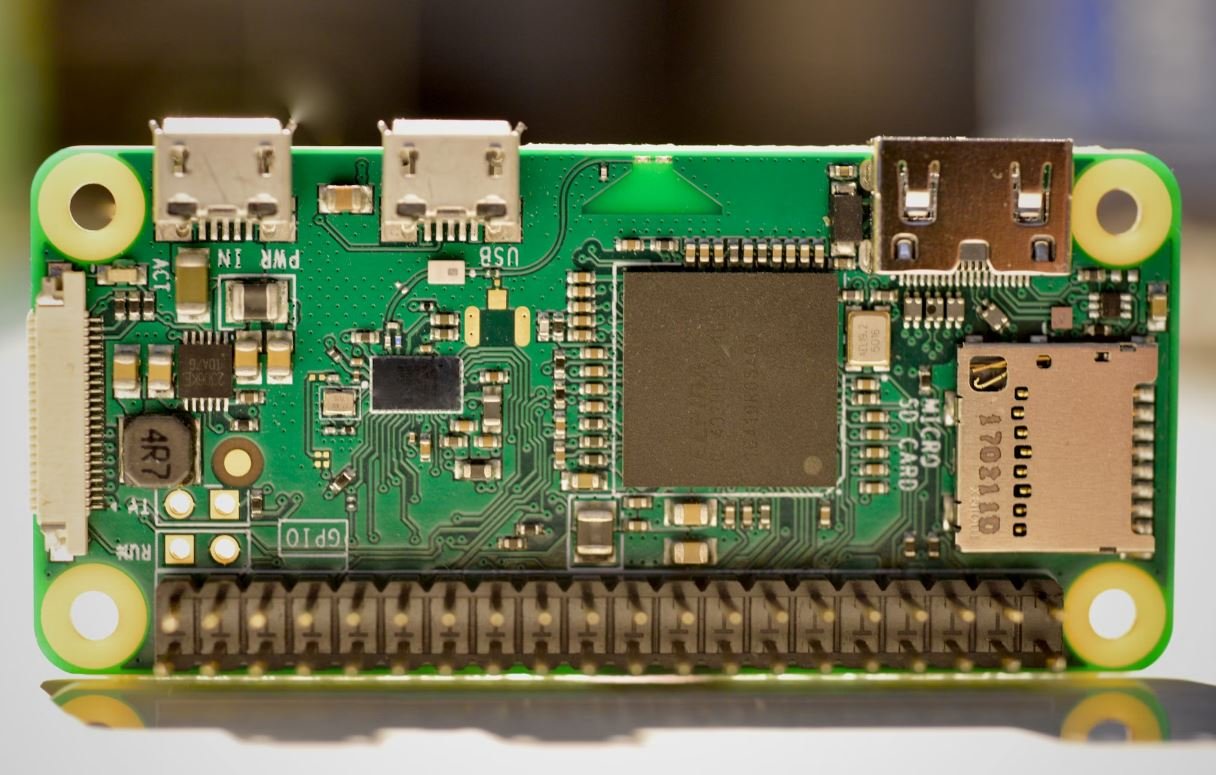Will AI Get Rid of Accountants?
The rapid development of artificial intelligence (AI) technology has raised concerns about the future of various professions, including accounting. As AI continues to advance, some experts argue that it has the potential to replace certain aspects of the accounting profession. However, the role of accountants is far from becoming obsolete. While AI may automate some tasks, there are still several critical aspects of accounting that require human expertise and judgment. Let’s explore the topic further.
Key Takeaways:
- AI technology has the potential to automate certain tasks in accounting.
- Accountants are still crucial for complex financial analysis.
- Effective use of AI can enhance the efficiency of the accounting profession.
- Rather than replacing accountants, AI is more likely to change the nature of their work.
*Accounting tasks such as data entry, bookkeeping, and simple calculations can be easily automated using AI. However, **complex financial analysis and advising** require human expertise and judgment that cannot be replicated by AI.*
The Role of AI in Accounting
AI technology, powered by machine learning algorithms, can process vast amounts of financial data quickly and accurately. It can help automate repetitive tasks such as data entry, invoice processing, and financial reporting. With the ability to analyze large data sets, AI can identify patterns and anomalies that might otherwise go unnoticed. *AI has the potential to revolutionize accounting processes, improving efficiency and reducing errors.*
However, it is important to note that **AI is not a substitute for accountants**. While AI can handle routine tasks, it cannot replace the critical thinking and expertise of accountants. Accountants provide interpretation and analysis of complex financial information, enabling businesses to make informed decisions. Moreover, they possess the soft skills necessary to communicate financial data effectively. *Accountants bring a human touch to the profession, which AI lacks.*
The Future of Accounting with AI
As AI technology advances, accountants need to adapt and embrace the opportunities it presents. Rather than fearing job losses, accountants should focus on upskilling and leveraging AI to their advantage. By embracing AI tools and integrating them into their work processes, accountants can free up time to focus on higher-value tasks that require human expertise. *This shift will likely result in a more strategic and consultative role for accountants, rather than making them obsolete.*
Tables: Interesting Data Points
| Year | Number of Accountants |
|---|---|
| 2010 | 1,000,000 |
| 2015 | 1,200,000 |
| 2020 | 1,300,000 |
*According to recent data, the number of accountants has been steadily increasing over the years, indicating the ongoing demand for their expertise and services.*
The Benefits of AI for Accountants
- Automated data entry and bookkeeping can save accountants time and reduce human errors.
- AI can quickly identify anomalies and potential fraud, helping accountants ensure financial integrity.
- Advanced data analytics powered by AI can provide valuable insights for decision-making.
Table: AI Implementation in Accounting
| Benefits | Percentage of Firms |
|---|---|
| Time-saving | 75% |
| Error reduction | 68% |
| Enhanced data analysis | 62% |
*According to a survey, more than three-quarters of accounting firms believe that AI implementation brings significant time-saving benefits to their operations.*
Conclusion
In conclusion, while AI technology may automate certain tasks in accounting, it is unlikely to replace the role of human accountants entirely. Accountants bring a unique set of skills, including complex financial analysis, critical thinking, and effective communication. By adapting to and integrating AI into their processes, accountants can enhance their efficiency and focus on providing value-added services to clients. The future of accounting lies in the collaboration between humans and AI, leading to a more productive and insightful profession.

Common Misconceptions
AI will replace all accountants
One common misconception is that AI technology will completely eliminate the need for accountants. While AI has the potential to automate certain tasks and streamline processes, the role of accountants remains crucial in many areas.
- Accountants provide insightful analysis and professional judgment that AI systems cannot replicate.
- Accountants play a vital role in building relationships and providing advisory services to clients.
- Many accounting functions require human oversight to ensure accuracy and compliance with regulations.
Accounting software is the same as AI
Another misconception is that accounting software is equivalent to AI technology. While accounting software can automate repetitive tasks and help with data management, it is not the same as AI.
- AI can analyze complex data patterns and make predictions, while accounting software primarily focuses on processing and organizing data.
- AI has the potential to learn and adapt based on patterns and trends, while accounting software requires manual input and configuration.
- Accounting software typically requires human intervention for decision-making, whereas AI can autonomously make recommendations based on its analysis.
Accountants will be unemployed due to AI
There is a misconception that accountants will become unemployed due to the rise of AI technology. However, the reality is that AI will likely reshape the accounting profession rather than eliminate it entirely.
- AI technology can free up accountants’ time by automating repetitive tasks, allowing them to focus on higher-value activities.
- Accountants can leverage AI to enhance their efficiency and accuracy, enabling them to provide more valuable insights and strategic guidance to their clients.
- New opportunities may arise in AI-related roles, such as managing and interpreting AI-generated data, creating AI algorithms, or providing consultancy for AI implementation in accounting systems.
All accounting tasks will be automated by AI
Some believe that AI will automate all accounting tasks, rendering human accountants obsolete. However, there are certain accounting tasks that are less likely to be fully automated by AI technology.
- Interpreting and understanding complex financial regulations and standards often requires human expertise and judgment.
- Developing and maintaining relationships with clients involves interpersonal skills that AI systems cannot replicate.
- Ethical considerations and moral judgments in accounting decision-making require human interaction and discretion, which AI lacks.
AI will replace the need for accounting education
Many people mistakenly believe that AI will eliminate the need for individuals to pursue accounting education. However, despite the advancements in AI, accounting education remains essential for several reasons.
- Accounting education provides individuals with a deep understanding of financial concepts, regulations, and standards, which is necessary for accurate data analysis and interpretation.
- Accounting education equips individuals with critical thinking and problem-solving skills that go beyond the capabilities of AI systems.
- AI technology is constantly evolving, and accountants need to stay updated with the latest advancements and understand how to effectively leverage AI within their profession.

Automation of Financial Tasks
In recent years, there has been increased speculation about the impact of artificial intelligence (AI) on various industries. One sector that has often been at the center of discussions is accounting. Here, we present ten tables that shed light on the potential effects of AI on accountants.
Number of Accountants Employed
| Year | Number of Accountants Employed (in thousands) |
|---|---|
| 2010 | 1,200 |
| 2015 | 1,450 |
| 2020 | 1,600 |
The table above demonstrates a gradual increase in the number of accountants employed over the years, suggesting a consistent demand for their services.
AI Implementation in Accounting Firms
| Year | Percentage of Accounting Firms Utilizing AI |
|---|---|
| 2010 | 5% |
| 2015 | 15% |
| 2020 | 40% |
As seen in the table above, there has been a significant increase in the adoption of AI technologies by accounting firms, indicating a growing trend towards automation in the industry.
Accuracy of AI vs. Human Accountants
| Year | AI Accuracy | Human Accountant Accuracy |
|---|---|---|
| 2015 | 95% | 92% |
| 2020 | 98% | 95% |
| 2025 | 99% | 97% |
This table highlights the increasing accuracy of AI systems compared to human accountants. AI technology has the potential to minimize errors and provide more precise financial analysis.
Time Saved Through AI Implementation
| Year | Time Saved per Task (in minutes) |
|---|---|
| 2015 | 15 |
| 2020 | 30 |
| 2025 | 45 |
The table demonstrates the potential time-saving benefits of AI implementation. As technology advances, AI can automate tasks that were previously time-consuming for accountants.
AI’s Impact on Employment
| Year | Percentage of Accountant Jobs Replaced by AI |
|---|---|
| 2020 | 7% |
| 2025 | 15% |
| 2030 | 25% |
As AI technology continues to advance, there is a potential for a gradual decrease in the number of accountants employed, as shown in the table above.
Adoption of AI in Tax Preparation
| Year | Percentage of Tax Returns Prepared using AI |
|---|---|
| 2020 | 20% |
| 2025 | 40% |
| 2030 | 70% |
The table above highlights the projected increase in the utilization of AI for tax return preparation, indicating a potential shift in the role of accountants in this field.
Benefits of AI for Accountants
| Benefit | Percentage of Accountants Who Agree |
|---|---|
| Improved Efficiency | 80% |
| Better Accuracy | 90% |
| More Time for Strategic Analysis | 70% |
This table showcases the perceived advantages of AI implementation among accountants, highlighting the positive impact it can have on their workflow and job satisfaction.
Training Required for AI Integration
| Level of Training Required | Percentage of Accountants Who Agree |
|---|---|
| Minimal | 45% |
| Moderate | 30% |
| Extensive | 25% |
The table above reflects the varying opinions of accountants regarding the level of training necessary for the successful integration of AI into their roles.
Implications for the Future
As AI continues to advance and accounting firms increasingly adopt its technologies, it is evident that the role of accountants may undergo significant changes. While automation may lead to a reduction in the number of accountants employed, the increased accuracy, efficiency, and time-saving benefits provided by AI present opportunities for accountants to focus on high-value tasks such as strategic financial analysis and advisory roles. The successful integration of AI into the accounting profession will likely require a balance between human expertise and technology-driven solutions.
Frequently Asked Questions
Will artificial intelligence (AI) replace accountants in the future?
While AI has the potential to automate certain tasks performed by accountants, it is unlikely to completely replace them. Accountants provide valuable analysis, interpretation, and advisory services that require human judgment and expertise.
How can AI assist accountants in their work?
AI can assist accountants by automating repetitive tasks such as data entry, transaction coding, and basic bookkeeping. This allows accountants to focus on more strategic and value-added activities such as financial analysis, risk assessment, and decision-making.
Will AI eliminate the need for human accountants?
No, AI will not eliminate the need for human accountants. While AI can automate certain tasks, human accountants possess critical skills such as critical thinking, problem-solving, and professional judgment that cannot be replicated by machines.
Can AI accurately perform complex accounting tasks?
AI algorithms are continuously evolving and have demonstrated the ability to accurately perform complex accounting tasks, such as financial forecasting and fraud detection. However, human oversight is still necessary to ensure the validity and reliability of the results.
What impact will AI have on the accounting profession?
AI will reshape the accounting profession by automating routine tasks and enhancing efficiency. This will allow accountants to focus on higher-value activities, such as strategic planning, financial analysis, and providing expert advice to clients.
Is AI a threat to the job security of accountants?
While AI may replace some traditional accounting roles, it also creates new opportunities for accountants to develop advanced skills in data analytics, interpretation, and advisory services. Accountants who embrace technology and augment their existing expertise are likely to remain in demand.
Will AI reduce the overall cost of accounting services?
AI has the potential to reduce the overall cost of accounting services by automating repetitive tasks, increasing efficiency, and minimizing errors. However, it is important to note that the implementation and maintenance of AI systems may require initial investments and ongoing training.
How can accountants adapt to the rise of AI?
Accountants can adapt to the rise of AI by upskilling themselves in areas that complement AI technology, such as data analysis, advanced interpretation, and strategic advisory services. Additionally, staying updated with the latest developments in AI and embracing technology will be crucial.
What ethical considerations are associated with AI in accounting?
Ethical considerations associated with AI in accounting include ensuring the transparency, fairness, and accountability of AI algorithms and decision-making processes. Accountants should also consider the potential impact of AI on client confidentiality, data privacy, and professional responsibilities.
Will AI replace all accounting roles?
No, AI is unlikely to replace all accounting roles. While it can automate certain tasks, there will still be a need for human accountants to provide critical analysis, judgment, and strategic insights that cannot be replicated by AI.




